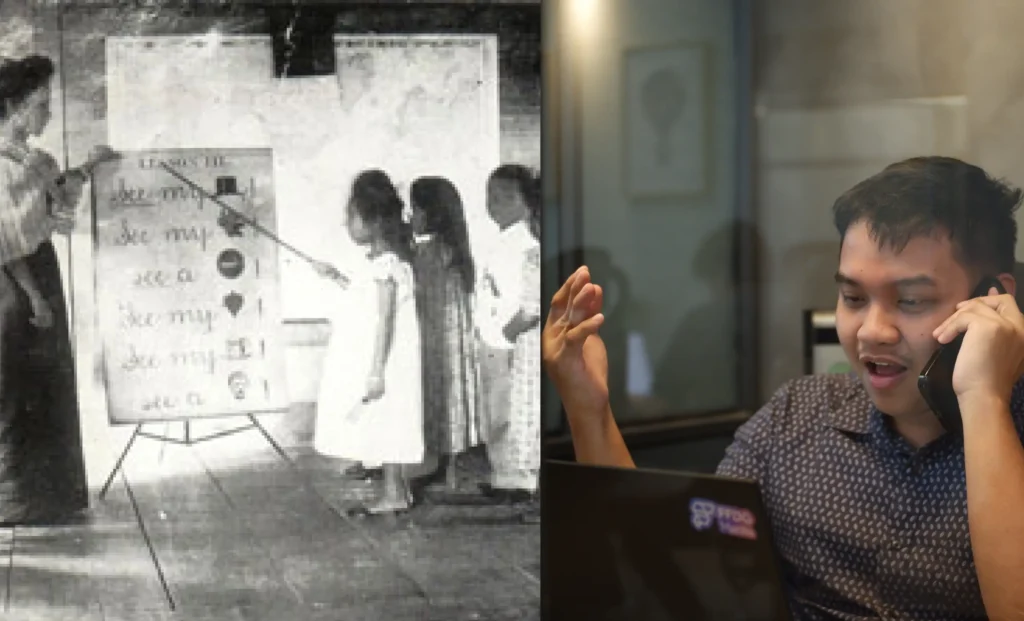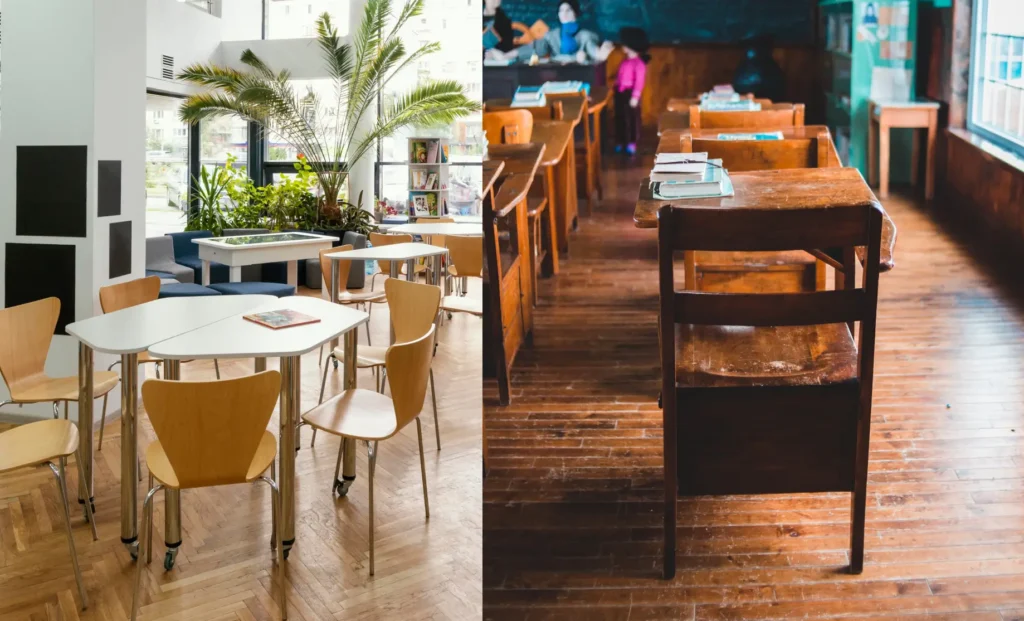
Jordana B., AI Processing Specialist |
January 28, 2025
If you’ve ever visited Lexcode’s office or browsed its website, chances are you’ve encountered its slogan near the door or on the landing page. As a translation and interpretation company, Lexcode specializes in bridging the linguistic gap between clients and their business partners or customers.
This mission is what first drew me to the company. As a language major fresh out of university, I knew I wanted to work in a place that would nurture my passion for linguistics and languages. And sure enough, that’s exactly what I’m doing here. After completing a two-week training, I’m now editing and translating various files for a diverse range of clients. All these files are in English, translated from a variety of languages, such as Korean, Filipino, and recently, Spanish.
Working primarily with English files has made me realize just how crucial English proficiency is in today’s world. As the global lingua franca, English has become an essential tool for communication, access to knowledge, and economic opportunity. However, in the Philippines, this widespread use of English has not led to a uniform level of proficiency across the population.
While the Philippines is one of the largest English-speaking countries in the world, with about two-thirds of the population fluent in the language (Mariñas, 2021), not everyone is proficient enough to be seen as an “asset” in the workforce.
So, why does this language-based inequality happen?
This occurs because of socioeconomic disparities, coupled with unequal access to quality English education. To make it worse, globalization intensifies this inequality and perpetuates “unequal Englishes” in the country.
Unequal Englishes refers to the unequal ways and situations in which Englishes are arranged, configured, and contested. This means that “language is plural and dynamically changing, except that such plurality and change impact the lives of speakers unequally” (Tupas, 2019).
As Tupas (2019) puts it, we speak Englishes, but our Englishes “do not equally give us access to the promised goods and benefits of learning English.” The English language is an opportunity for some people, including me, but it is also a barrier to many Filipinos, especially those who do not have the privilege to access quality English education.
The Role of English in the Philippines

Globally, the Philippines is one of the leading English-speaking nations with approximately 14 million Filipinos who speak the language fluently (Cabigon, 2015). Unlike most other postcolonial countries, the Philippines acquired English from the Americans rather than the British. The spread of the English language started when the Thomasites started to teach and train Filipinos to use English.
The exposure of English in various Philippine languages has led to its nativization and indigenization, which resulted in the adoption of distinct new forms, features, and functions, which is now known as Philippine English (Martin, 2020).
However, the existence of Philippine English is not exactly well received in a society stuck in the shackles of coloniality. As a postcolonial country, many language ideologies surrounding English have formed. This includes favoring standard English over local variants, viewing English as a measure of intelligence and ability (Martin, 2014), and believing it unlocks opportunities for success (Tupas, 2022).
Today, English occupies a dominant position in the Philippine sociolinguistic landscape. It is the language of choice in business, law, and academia. Job opportunities, especially in the BPO, tourism, and corporate management sectors, favor candidates who can communicate effectively in English, as it is essential for engaging in international business and navigating globalized industries. Those who have limited English-speaking skills are being sidelined, trapped in low-paying jobs or informal work.
Linguistic Stratification in the Philippines
The harsh reality is that English proficiency is often a key factor in securing a job and achieving success. However, it remains a privilege enjoyed by only a small segment of the Filipino population. While some sectors of society speak English fluently, many others, particularly in rural and economically disadvantaged areas, struggle because of limited exposure and proficiency. In fact, the use of English in the Philippines is stratified along sociolinguistic lines.
Gonzales (2017) refers to this categorization of Englishes as Social Englishes. These can be broken down into three varieties: acrolect, mesolect, and basilect. The acrolect variety is closest to American English. This type of Philippine English is spoken by media personalities, lectors, ministers, and English majors (Gonzales, 2017). Filipinos who speak the acrolect variety typically pronounce vowels and consonants in a way that closely resembles American English phonology (Llamzon, 1997, as cited in Gonzales, 2017.)
On the other hand, the mesolect variety is used by celebrities, government officials, other academics, and the mass media who use English in their workplace extensively. Meanwhile, the basilectal variety is utilized by speakers who have limited command of the English language that is usually spoken by nonprofessionals (e.g., janitors).
Most of the Philippines is composed of people who speak a basilectal variety of English. However, this type of English is deemed unacceptable in some sectors because they prefer workers who use standard English.
Standard English (or Global English) is the “ideal” English, typically American or British. This type of English is mostly used in the BPO, tourism, and corporate management sectors. It is also considered the “prestigious” form of English and is often associated with higher education, access to global markets, and upward social mobility.
So, does that mean using “nonstandard” English is wrong? Not necessarily. However, the linguistic reality in the Philippines is that if you cannot command the language in the same way a “native” speaker would, your chances of success are limited.
Social Class and Access to Education

This dynamic has only been amplified by globalization, which has made English proficiency a crucial gateway to the global economy. In the Philippines, the importance of English has grown, not just as a tool for communication but also as a marker of class and social stratification, shaped by several key factors.
1. Privileged access to quality education: Those from wealthy families can afford private schooling or elite universities where English is taught in its “standard” form and used as a medium of instruction. Meanwhile, lower-income individuals, especially in rural areas, may not have access to the same resources. These inequalities are compounded by the global demand for English proficiency, as those with higher proficiency are better positioned for white-collar jobs in multinational companies, outsourcing, and the BPO (business process outsourcing) industry.
2. Regional disparities: The gap between public and private education is further widened by regional disparities. Urban centers like Metro Manila benefit from better-funded schools and greater exposure to English through media and daily interactions. Meanwhile, rural areas, particularly those in far-flung provinces, often lack the resources and infrastructure to provide adequate English education. The uneven distribution of linguistic capital leaves many students in these regions struggling to compete in a job market that increasingly demands English proficiency.
3. Socioeconomic factors: This inequality extends beyond formal education. Children from affluent families are more likely to grow up in environments where English is used daily, giving them a head start over their peers. They have access to extracurricular programs, private tutors, and English-language materials that reinforce their skills. In contrast, children from underprivileged backgrounds often encounter English only in school, where the quality of instruction may be subpar. This disparity perpetuates a cycle where the rich get richer in linguistic capital, while the poor remain disadvantaged.
The dominance of English in the Philippines, while offering opportunities for global engagement, has also become a source of inequality. Historical factors, socioeconomic disparities, and regional imbalances converge to create a landscape where linguistic capital is unevenly distributed, reinforcing social divides. The reliance on English as a marker of competence and access to opportunities marginalizes those who lack the means to acquire fluency.
As someone who’s fortunate to have studied English for years and now works as an editor, where my English skills are constantly honed and put to use, I recognize that this is a privilege. Language-based inequality continues to persist, and I am aware that not everyone has the same opportunities to develop these skills.
Hence, we must continue advocating for policies that ensure no one is left behind in the pursuit of progress. After all, language should not be a barrier but an opportunity that everyone can use to succeed.
References:
Cabigon, M. (November, 2015). State of English in the Philippines: Should we be concerned? British Council. https://www.britishcouncil.ph/teach/state-english-philippines-should-we-be-concerned-2
Gonzales, W.DW. (2017). Philippine Englishes. Asian Englishes. 19. 79–95. https://doi.org/10.1080/13488678.2016.1274574
Mariñas, J. (2021, July 28). Top English-Proficient countries for business. Cloud Employee. https://cloudemployee.co.uk/blog/it-outsourcing/why-philippines-for-business
Martin, K. (2014). Fearing English in the Philippines. Asian Englishes, 11(2), 76-79. https://doi.org/10.1080/13488678.2008.10801237
Martin, I.P. (September, 2020). Philippine English. The Handbook of Asian Englishes (edited by Kingsley Bolton, Werner Botha, and Andy Kirkpatrick).
Tupas, R. (2019). Decentering language: displacing Englishes from the study of Englishes.
Critical Inquiry in Language Studies, 17(3), 228–245.